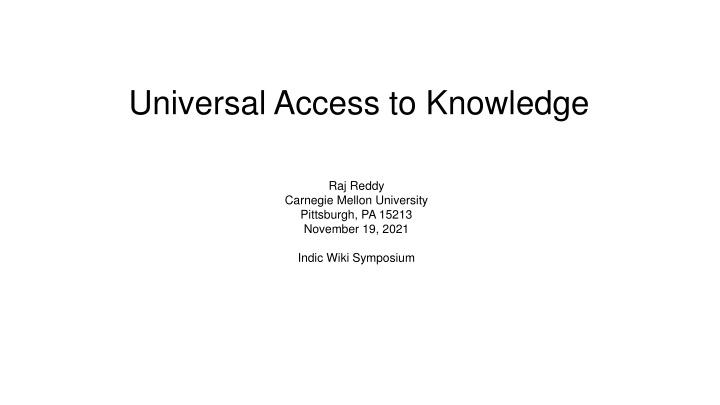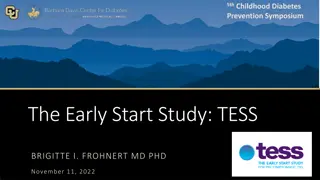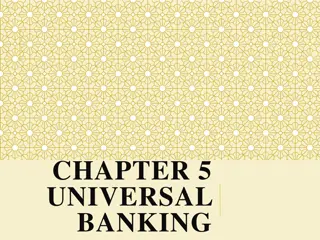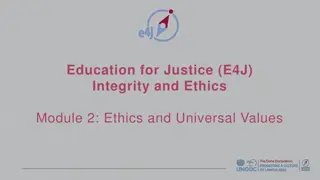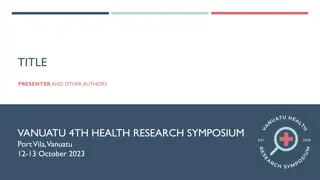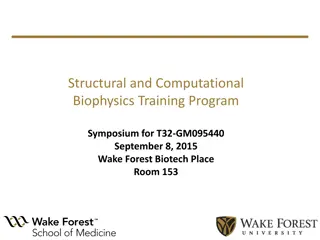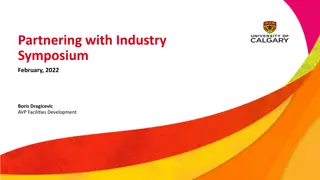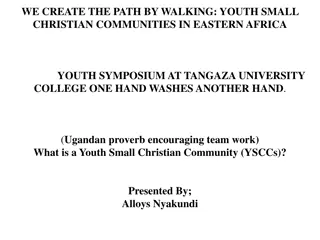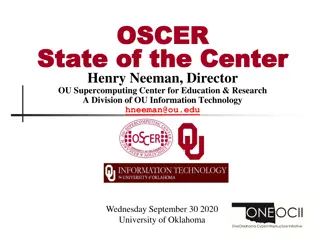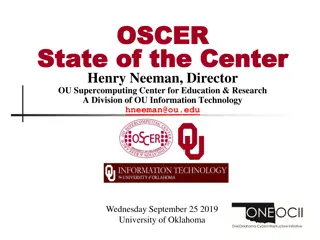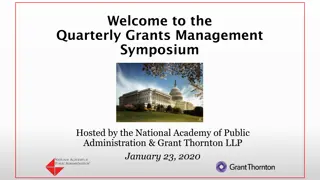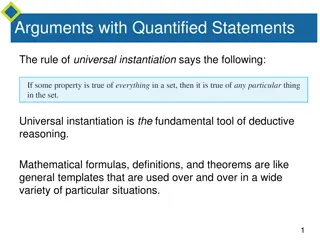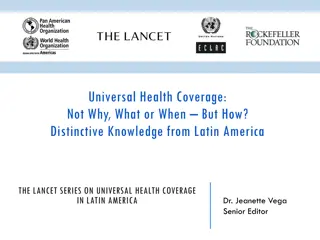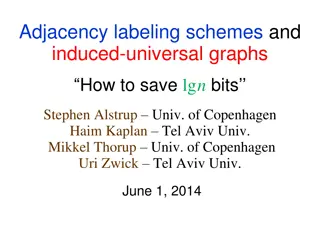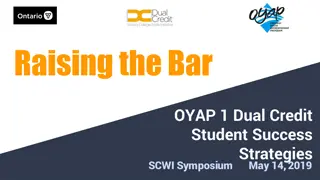Universal Access to Knowledge Symposium & History of Encyclopedias Report
Universal Access to Knowledge Symposium featuring Raj Reddy, held at Carnegie Mellon University. Learn about the history of encyclopedias, from ancient Roman scholar Varro to the emergence of digital encyclopedias like Wikipedia. Explore the evolution of encyclopedias by size, including notable editions like Encyclopædia Britannica and Microsoft Encarta. Discover the collaborative nature of Wikipedia, a free-for-all platform where anyone can contribute, change, and delete articles. Dive into the most visited sites in the USA.
Download Presentation

Please find below an Image/Link to download the presentation.
The content on the website is provided AS IS for your information and personal use only. It may not be sold, licensed, or shared on other websites without obtaining consent from the author.If you encounter any issues during the download, it is possible that the publisher has removed the file from their server.
You are allowed to download the files provided on this website for personal or commercial use, subject to the condition that they are used lawfully. All files are the property of their respective owners.
The content on the website is provided AS IS for your information and personal use only. It may not be sold, licensed, or shared on other websites without obtaining consent from the author.
E N D
Presentation Transcript
Universal Access to Knowledge Raj Reddy Carnegie Mellon University Pittsburgh, PA 15213 November 19, 2021 Indic Wiki Symposium
History of Encyclopedias Report to the President (2001): Universal Access to Knowledge, PITAC Report An Encyclopedia is an attempt to summarize all known knowledge of the world into a compact quickly accessible format Digital Encyclopedia s emerged on CDs in the 90s Open-source GNUpedia proposed by Stallman in 1999 Nupedia was an early attempt to use experts Wikipedia: Online Encyclopedia using Wiki Technology A wiki is a webpage/document with an open-editing system, a collaborative tool that allows students to contribute and modify one or more pages of course Wiki was introduced by Ward Cunningham in 1995 when he created collaborative software that he called WikiWikiWeb. Wiki is Hawaiian for to hurry; fast, quick. Marcus Terentius Varro, ancient Roman scholar and writer, whose Nine Books of Disciplines became a model for later encyclopedists https://en.wikipedia.org/wiki/History_of_encyclopedias
Encyclopedias by Size Articles (thousands) (millions) 6,400+ Words Encyclopedia Edition Wikipedia Baike.com (formerly Hudong) (Chinese Wiki)Nov-09 Encyclop dia Britannica Encyclop dia Britannica Great Soviet Encyclopedia English 3,984+ 3,920+ 4,300+ 2013 40[13] 44 Online 120 55 21 1978 100 Encarta Deluxe 2002 Encarta Deluxe 2005** 2002 Encarta Encyclopedia 70 Microsoft Encarta 40 Microsoft Encarta 63 40 Microsoft Encarta 40 26 Encyclopedia Americana 2006 45[14] 25
History of Wikipedia Free for All Anyone can Add, Change, and/or Delete articles Wiki Collaborative Editing Tool Open Source Wikipedia began with its first edit on 15 January 2001, two days after the domain was registered[2]by Jimmy Wales and Larry Sanger Its technological and conceptual underpinnings predate this; The earliest known proposal for an online encyclopedia was made by Rick Gates in 1993,[3] And the concept of a free-as-in-freedom online encyclopedia (as distinct from mere open source)[4]was proposed by Richard Stallman in 1998.[5] https://en.wikipedia.org/wiki/History_of_Wikipedia
Most Visited Sites in USA
Most Visited Sites on the Internet Most popular websites worldwide as of June 2021, by total visits(in billions) Google 86.9 You Tube 22.8 Facebook 20.0 Wikipedia 13.4 Japan Yahoo 5.2 Amazon 4.4
No of Accesses Per Day English Wikipedia (1.3 B English Speakers: Native or as a second language) 9B in a month (Wikipedia access by English population: 83 times a year) 300 million per day 85.3M unique devices Hindi Wikipedia (Population 528M) 876 million per Year (Wikipedia accesses by Hindi population 1.7 times a year) ~2.5 M per day 17 M unique devices Telugu Wikipedia (Population 81M) 96 million per Year (Wikipedia accesses by Telugu population: 1.2 times a year) ~250K per day 1 M unique devices
Location of Wikipedia in Google Search Almost no 1 More detail ..
